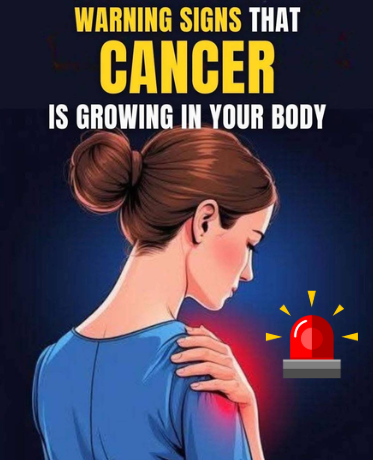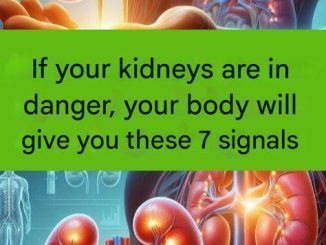
Cancer doesn’t always announce itself with obvious symptoms. Sometimes, the earliest signals are so subtle that people brush them off as minor health quirks. But paying attention to these small changes can make all the difference when it comes to early detection. The truth is, your body often whispers before it screams. Let’s take a closer look at 12 surprising signs that could indicate your body is fighting cancer.
Why Subtle Symptoms Matter
Early-stage cancers are often more treatable, yet many people delay seeking help because their symptoms seem harmless. What feels like fatigue, weight changes, or even a nagging cough might actually be your body’s way of sounding an alarm.
1. Unexplained Fatigue That Lingers
We all feel tired from time to time, but if you’re constantly exhausted despite getting enough rest, it could mean more. Cancer uses up your body’s energy supply and may release substances that alter how your body creates energy. If you’re dragging day after day, don’t ignore it.
2. Persistent Cough or Hoarseness
A cough that won’t quit, or a hoarse voice that lingers for weeks, may be tied to lung, throat, or thyroid cancers. If your cough doesn’t improve after standard cold treatments, it’s time to check in with a doctor.
3. Sudden Weight Loss Without Trying
Dropping pounds without changing your diet or activity level might feel like a bonus—but it’s a major red flag. Weight loss can signal cancers of the stomach, pancreas, lungs, or esophagus. When your body is fighting disease, it often burns calories faster than usual.
4. Skin Changes That Look Odd
Not just new moles—skin changes like darkened patches, yellowing, or unusual redness can be signs of cancer. Melanoma, in particular, is notorious for disguising itself as an innocent mole before becoming dangerous.
5. Trouble Swallowing or Digestive Issues
Difficulty swallowing, frequent indigestion, or feeling like food gets stuck could be related to esophageal or stomach cancers. If these symptoms stick around even after lifestyle changes, don’t dismiss them as “just reflux.”
Video : 12 Early Cancer Signs You Can’t Ignore!
6. Frequent Fevers or Infections
When cancer disrupts the immune system, you may experience recurring fevers or infections. Blood cancers like leukemia often first show themselves through unexplained fevers, chills, or frequent illnesses.
7. Unusual Bleeding or Bruising
Blood in your stool, urine, or even persistent nosebleeds can be linked to cancer. Bruising more easily than usual is another subtle symptom, often related to cancers that affect blood cells.
8. Changes in Bowel or Bladder Habits
A sudden shift in your bathroom routine—whether constipation, diarrhea, or increased urination—may point to colon, bladder, or prostate cancer. It’s not just an inconvenience; it’s a clue worth investigating.
9. Ongoing Pain That Doesn’t Improve
Chronic pain without a clear cause can sometimes be tied to cancer. Bone pain, back pain, or abdominal pain that lingers could be connected to underlying tumors. Don’t chalk it up to aging or stress without ruling out other causes.
10. Swollen Lymph Nodes
Lymph nodes are part of your immune system, and when they swell without an obvious infection, it could be a sign of lymphoma or leukemia. If swelling lasts longer than a couple of weeks, get it checked.
11. Night Sweats or Unexplained Chills
Waking up drenched in sweat isn’t always about hormones or room temperature. For some, it’s an early symptom of cancers like lymphoma. If your night sweats are intense and frequent, don’t ignore them.
12. Changes in the Mouth or Throat
White patches, sores that don’t heal, or unusual lumps in your mouth or throat may be early indicators of oral cancers. These are especially important to watch if you smoke, drink heavily, or have a history of HPV.
Video : 12 Signs of CANCER Growing In Your Body You Shouldn’t Ignore (Never Miss) | VisitJoy
Conclusion
Cancer doesn’t always shout—it often whispers through subtle signs like fatigue, weight loss, or skin changes. While these symptoms don’t always mean cancer, ignoring them can delay critical treatment. The key is awareness: listen to your body, track unusual changes, and seek medical advice when something feels off. Early detection saves lives, and paying attention to the small stuff today could protect your future tomorrow.


